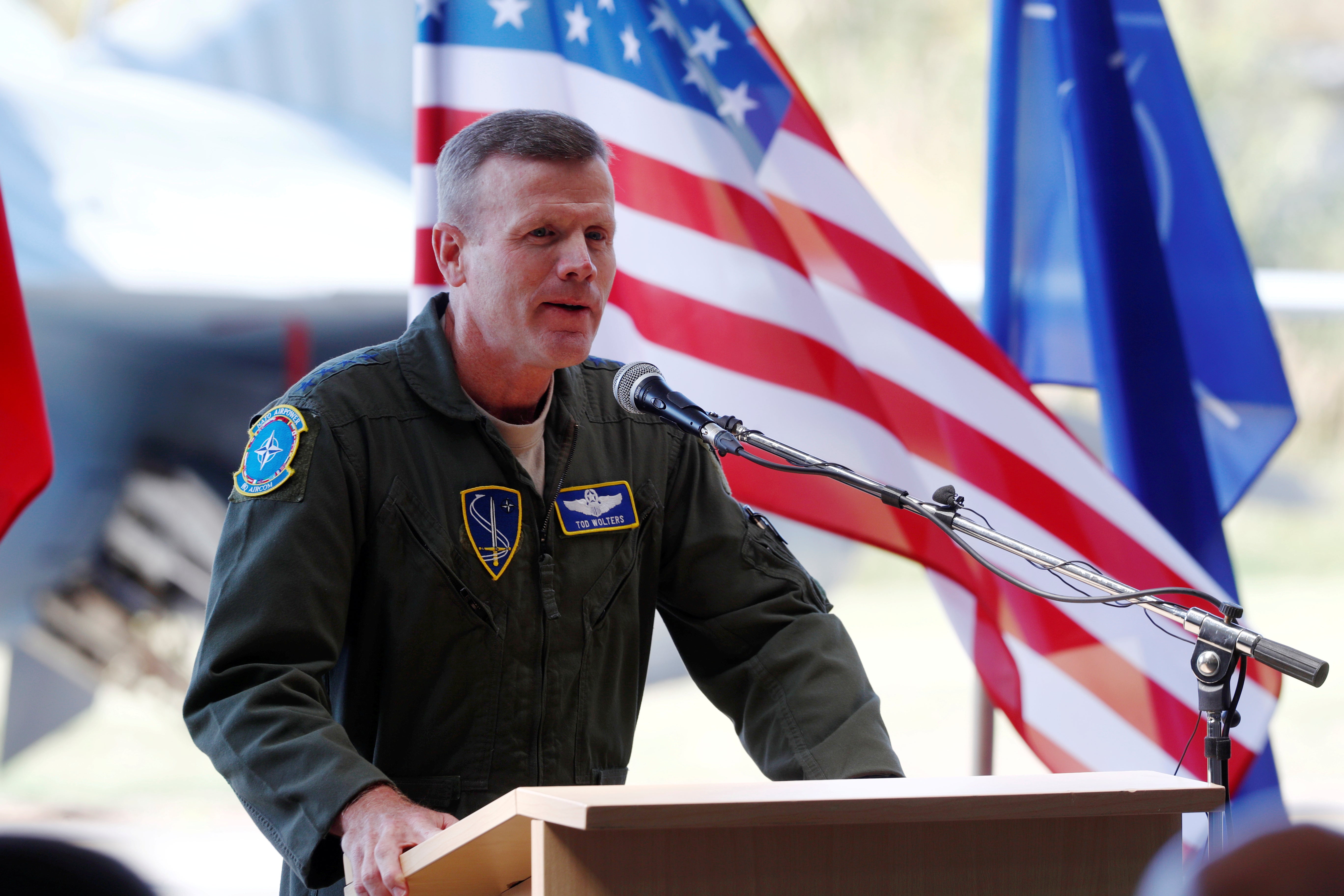US military halts Trump order to withdraw 12,000 troops from Germany
Move is to allow the new US Defence secretary, Lloyd Austin, to carry out a review

Your support helps us to tell the story
From reproductive rights to climate change to Big Tech, The Independent is on the ground when the story is developing. Whether it's investigating the financials of Elon Musk's pro-Trump PAC or producing our latest documentary, 'The A Word', which shines a light on the American women fighting for reproductive rights, we know how important it is to parse out the facts from the messaging.
At such a critical moment in US history, we need reporters on the ground. Your donation allows us to keep sending journalists to speak to both sides of the story.
The Independent is trusted by Americans across the entire political spectrum. And unlike many other quality news outlets, we choose not to lock Americans out of our reporting and analysis with paywalls. We believe quality journalism should be available to everyone, paid for by those who can afford it.
Your support makes all the difference.The US military has halted an order issued by Donald Trump to withdraw more than a quarter of its forces from Germany – a move that was hugely controversial and viewed as an expression of spite towards a key western ally.
The freezing of the order to pull out 12,000 troops was unexpectedly revealed by General Tod Wolters, Nato’s supreme allied commander Europe, while answering questions from journalists. He said it would be put on hold to enable the new US defence secretary, Lloyd Austin, to carry out a thorough review and report to the president, Joe Biden.
Mr Trump had described his decision as punishment for Germany’s low spending on defence. It was widely seen to be an expression of his anger towards the German chancellor, Angela Merkel, who had repeatedly challenged him on a number of issues.
Speaking at allied headquarters in Mons, Belgium, Gen Wolters said: “At this very moment, every single one of those options, they are all on hold. They will all be re-examined from cradle to grave. The US secretary of defence is at this moment in the process of conducting a very, very thorough review, and he will receive advice from both civilian and military leadership. Once he is allowed to collate all that advice to ultimately bring it to our president and the White House, he will deliver us a decision.”
Mr Trump’s decision, it was claimed, was taken with next to no consultation with fellow Nato members. It was also said to be against the wishes of senior figures in the Pentagon and the State Department.
The withdrawal announcement last June came a week after a fractious telephone call with Ms Merkel during which the German chancellor told the then president that she would not be attending the G7 summit being hosted in the US because of the coronavirus pandemic.
Later claiming, wrongly, that Germany was not paying its Nato commitment, Mr Trump declared: “Our troops are there to protect Germany, right? And Germany is supposed to pay for it. Germany’s not paying for it. We don’t want to be the suckers any more. The United States has been taken advantage of for 25 years, both on trade and on the military. So we’re reducing the force because they’re not paying their bills.”
Norbert Roettgen, chairman of Germany’s foreign affairs committee, commented at the time: “‘America First’ seems to have morphed into ‘Trump First’. It’s all about him; it’s not about a vision of the world, not about politics; it’s about him, about his need for validation – and sometimes his need for revenge. He is nervous and under pressure and the tighter it gets for him, the more critical the situation is for him, the more he will lash out.”
Robert Menendez, the senior Democrat on the US Senate foreign relations committee, said: “Champagne must be flowing freely this evening at the Kremlin. The Trump administration’s decision to withdraw forces from Germany is not only an affront to one of our closest allies, but will ultimately weaken US efforts to counter Kremlin aggression in Europe.”
Announcing the halt to the withdrawal on Wednesday, Gen Wolters emphasised that “the planning ongoing for the previous initiative has been put on freeze so that our secretary of defence and this administration can review everything that has transpired until the point when they took charge.
“They can have a comprehensive look at all of the actions from A to Z, and how every one of those impact on our larger deterrence and security picture. I want to make sure that I give our senior civilian leadership the appropriate manoeuvring space to make sure that we can collectively go forward in the future.”

Join our commenting forum
Join thought-provoking conversations, follow other Independent readers and see their replies
Comments